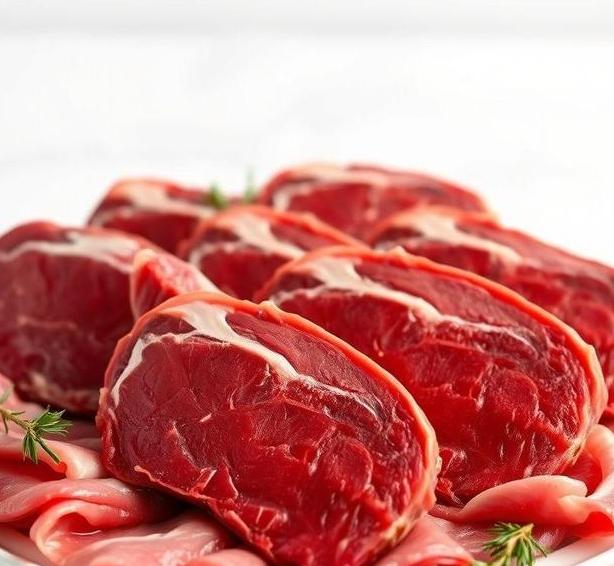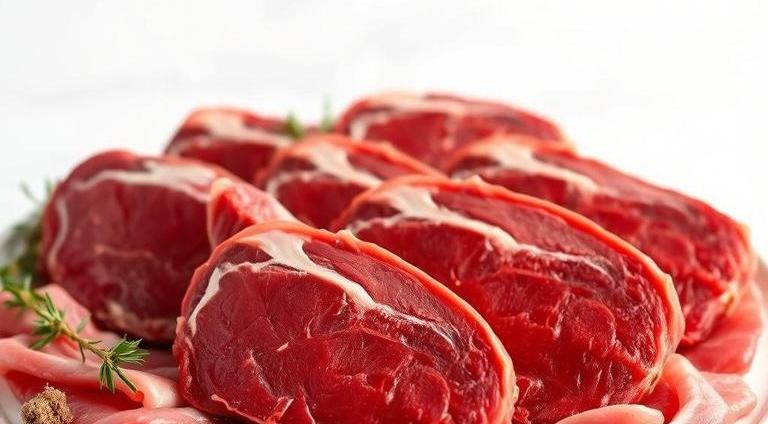Venison, the meat of wild game such as deer, is prized for its lean, flavorful, and nutritious qualities. Whether you’ve just bagged your first deer or purchased some high-quality venison from a butcher, you might find yourself wondering: how long does uncooked venison last? And more importantly, can uncooked venison go bad?
Knowing how to properly handle and store venison is crucial to ensuring that your meat stays fresh and safe to eat. Unlike beef, chicken, or pork, venison is a different kind of meat altogether, and it requires special attention when it comes to storage and handling. In this guide, we’ll dive deep into the shelf life of uncooked venison, explore the common signs that it’s gone bad, and give you expert tips for keeping your venison at its best.
Can Uncooked Venison Go Bad?
The short answer is yes, uncooked venison can absolutely go bad. Just like any other type of raw meat, venison is prone to bacterial growth and spoilage if not stored properly or if it’s kept for too long. Because venison is leaner than beef and has a slightly different composition, it tends to spoil faster in certain conditions.
Several factors can speed up this process:
- Temperature fluctuations: If venison is exposed to temperatures outside of safe ranges, it will spoil much faster.
- Improper handling: Not keeping the meat clean or contaminating it during processing can introduce bacteria that cause it to spoil.
- Time: Every meat has a ’window’ of freshness. When that window closes, the meat will start breaking down and growing harmful bacteria.
Shelf Life For Uncooked Venison

Knowing how long uncooked venison will last is essential for food safety. Let’s break it down based on different storage methods:
Refrigeration
When you keep uncooked venison in the fridge, the key is to keep the temperature below 40°F (4°C). In the fridge, venison can last anywhere from 3 to 5 days if stored properly in an airtight container or wrapped tightly in butcher paper.
- How long: 3 to 5 days
- Ideal temperature: Below 40°F (4°C)
Freezing
If you’re not planning to cook your venison within a few days of receiving or hunting it, freezing is your best bet. Frozen venison can last much longer, preserving its freshness and flavor.
- How long: 6 to 12 months
- Ideal temperature: Below 0°F (-18°C)
Vacuum Sealing
Vacuum sealing venison before freezing will significantly extend its shelf life. This method helps prevent freezer burn and maintains the meat’s quality.
- How long: 1 year or more (with vacuum sealing)
- Ideal temperature: Below 0°F (-18°C)
Common Signs Of Spoilage
Venison can show a variety of warning signs that it’s gone bad. These are crucial to identify before you risk eating it.
Discoloration
Fresh venison is typically a deep, reddish-brown color. If the meat has turned gray, green, or has any noticeable spots of discoloration, it may be spoiled.
- What to look for: Brownish or gray patches, slimy texture.
Off Smell
One of the most obvious signs that venison has gone bad is a sour, rancid, or strong unpleasant odor. Fresh venison should have a mild, gamey scent.
- What to look for: Sour or rotten smell.
Slimy Texture
If the meat feels slippery or slimy to the touch, it’s a clear indication that it’s no longer safe to eat. Bacterial growth causes this change in texture.
- What to look for: Excess moisture, slimy residue.
Mold
Any visible mold growing on the surface of venison means that it’s definitely spoiled and should be discarded immediately.
- What to look for: Green, blue, or fuzzy patches.
Tacky Or Sticky Surface
When venison becomes sticky or tacky, it’s a result of bacterial growth and moisture retention. This is a sign that the meat is no longer fresh and should not be consumed.
- What to look for: Sticky or tacky surface.
How To Store Uncooked Venison?

Proper storage is essential for keeping uncooked venison fresh. Here’s a detailed breakdown of the best practices for storing it:
Refrigeration Storage
If you plan to cook the venison within the next few days, the refrigerator is the best place for it.
-
Steps
- Wrap the venison in butcher paper or plastic wrap, and place it inside a resealable plastic bag or an airtight container.
- Store it on the bottom shelf of the fridge to avoid contamination from other foods.
- Make sure your fridge is operating at a consistent temperature of 40°F (4°C) or lower.
Freezing Venison
To maximize the shelf life of venison, freezing is the best option. Proper packaging prevents freezer burn and keeps the meat safe to eat for months.
-
Steps
- Vacuum seal the venison or use freezer-safe bags. You can also wrap it tightly in plastic wrap, followed by aluminum foil.
- Remove as much air as possible to prevent freezer burn.
- Label each package with the date so you can easily keep track of when it was frozen.
Dry Aging (Optional)
Some people choose to dry age their venison to enhance flavor and tenderness. If you decide to go this route, you’ll need a cool, dry, and well-ventilated space.
-
Steps
- Hang the venison in a cool, humidity-controlled environment (ideally between 34°F – 38°F or 1°C – 3°C) for 1-3 weeks.
- Ensure that airflow is sufficient and that the meat is not touching anything else.
Expert Tips
Here are a few expert tips to help you store, handle, and prepare your venison properly:
- Trim the fat: Venison is lean, but it can have fat pockets that are prone to spoiling faster. Trim off excess fat before storing or freezing.
- Clean and sanitize: After processing the meat, make sure to clean your workspace, tools, and hands thoroughly. Bacteria like E. coli and Salmonella can easily transfer from raw meat to other surfaces.
- Use salt for preservation: If you’re planning to store venison for an extended period without freezing it, consider curing it with salt or smoking it to extend its shelf life.
- Know when to eat: If you’ve stored venison for over a year, you may want to check its quality before cooking it. While freezing preserves the meat, the texture and taste may decline over time.
FAQs
How Long Can Uncooked Venison Stay Fresh In The Refrigerator?
Uncooked venison can generally stay fresh in the refrigerator for about 3 to 5 days. Make sure it is stored properly in an airtight container or tightly wrapped in plastic wrap to prevent contamination.
Can Uncooked Venison Go Bad If It’s Left Out Overnight?
Yes, uncooked venison should never be left out at room temperature for more than 2 hours. Bacteria can grow rapidly at temperatures between 40°F and 140°F, leading to potential foodborne illnesses.
How Can I Tell If Uncooked Venison Has Gone Bad?
Signs that uncooked venison has gone bad include an off or sour odor, a slimy texture, and a change in color, such as turning from a rich red to brown or gray. If any of these symptoms are present, it’s best to discard the meat.
What Is The Best Way To Store Uncooked Venison To Prevent It From Spoiling?
To prevent spoilage, uncooked venison should be stored in the coldest part of your refrigerator, ideally between 32°F and 36°F. It can also be wrapped tightly in plastic wrap or aluminum foil and then placed in a resealable bag to minimize exposure to air.
Can I Freeze Uncooked Venison To Make It Last Longer?
Yes, freezing uncooked venison is an effective way to extend its shelf life. If stored in a freezer-safe container or tightly wrapped in plastic wrap and foil, it can last for up to 6 to 12 months without significant loss of quality.
How Do I Thaw Frozen Venison Safely?
To safely thaw frozen venison, place it in the refrigerator for several hours or overnight. Avoid thawing meat at room temperature, as this can allow bacteria to grow. Alternatively, you can thaw venison in cold water, changing the water every 30 minutes.
Does Uncooked Venison Spoil Faster Than Beef?
Uncooked venison can spoil faster than beef because it tends to have a lower fat content, which makes it more susceptible to bacterial growth. However, proper storage and handling can extend its freshness.
Is It Safe To Eat Uncooked Venison If It Has A Slight Odor?
If uncooked venison has a slight, unpleasant odor, it’s not safe to consume. Even a faint sour or rancid smell indicates bacterial growth, and eating it could lead to foodborne illness.
How Does The Age Of The Venison Affect Its Shelf Life?
The age of venison can significantly impact its shelf life. Freshly hunted venison should be processed and consumed as soon as possible, while older venison may spoil more quickly if not stored correctly. The longer the meat is stored, the greater the chance of spoilage.
Can Uncooked Venison Cause Food Poisoning If It Goes Bad?
Yes, if uncooked venison goes bad, it can lead to food poisoning. Spoiled venison can harbor harmful bacteria such as Salmonella, E. coli, or Listeria, which can cause nausea, vomiting, diarrhea, and more serious symptoms.